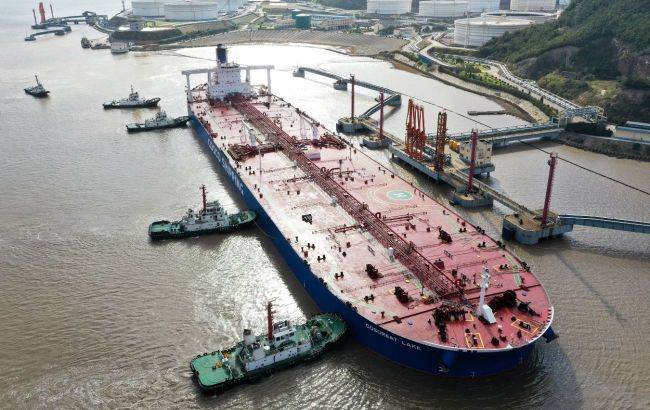US to enforce $60 price ceiling on Russian oil, encourages compliance
 The United States will seek adherence to the price ceiling on Russian oil (Photo: Getty Images)
The United States will seek adherence to the price ceiling on Russian oil (Photo: Getty Images)
According to Reuters, the administration of US President Joe Biden is prepared to expand its engagements with Western trading houses, insurers, and tanker owners. They will be reminded of the necessity to comply with the price limit set by the G7, European Union, and Australia for Russian oil, as it is being traded above this level.
This approach reflects Washington's desire to urge buyers to abide by the $60-per-barrel limit established last December by the G7 countries and their partners in response to Russia's invasion of Ukraine.
The administration is expected to adopt a "soft" approach instead of widespread threats of severe measures against potential violators, as this could lead to upheaval in energy markets, sources said.
"The initial inclination on the part of Treasury is to be soft on it, not to come down like a hammer on tankers and tanker owners, to enforce, but enforce quietly with letters, phone calls," said a source familiar with the administration's thinking on the matter.
Officials in the US are likely to increase contacts with trading houses, tanker owners, insurers, and others, reminding them that if Western maritime services are used, they must maintain evidence of purchasing Russian oil below $60.
A source in the Biden administration stated that such discussions with service providers about their requirements have been ongoing during the implementation of the restrictions.
"We’ve been having these types of conversations already, and they will continue," the source said.
The price ceiling prohibits Western companies from providing services such as transportation, insurance, and financing for oil sold above the established limit.
According to Reuters, Russian Urals oil has been trading at or above the limit for nearly two weeks. The US Treasury Department uses monthly average prices to calculate the Urals price, which means it may take some time before Russian oil is considered more expensive than the set limit.
The Office of Foreign Assets Control (OFAC) states that individuals or companies that evade, avoid, or violate the restrictions may face administrative or criminal consequences, including fines, and that it will collaborate with other countries to exchange information about non-compliance.
"We are doing our best to prevent evasion from distorting the market," a high-ranking official from the US Treasury Department stated.
Political risks
However, the US administration is cautious in its actions, fearing market fluctuations that could lead to higher global oil prices. It does not want to react too sharply to enforcement threats and risk escalating global oil prices, thereby interfering with oil flows, according to an anonymous source.
High energy prices present a political risk for President Joe Biden, who seeks re-election in 2024.
The restrictions have always had two goals: reducing Russia's oil export revenue and ensuring oil continues to flow to global markets. The administration asserts that the price ceiling is effective.
Recently, Deputy Finance Minister Wally Adeyemo engaged with countries with significant fleets of vessels and maritime trade. Meanwhile, Elizabeth Rosenberg, Assistant Secretary of the Treasury for Terrorism and Financial Intelligence, called on providers of insurance services and protection and indemnity clubs (P&I) to adhere to requirements related to Russian oil purchases, according to a source within the administration.
Costs for Russia
Another source within the US government stated that the high price of Urals oil is due to recent deals with certain countries. According to the source, these sales, primarily to India and China, are costly for Russia. Delivering oil over long distances, rather than through pipelines to Europe, requires Russia to spend money on a fleet of phantom tankers and other expenses.
Adeyemo said last month that the Russian central bank has secured around $9 billion through a reinsurance scheme aimed at replacing Western reinsurance money, which the Kremlin cannot invest in weaponry for the war in Ukraine.
The State Department "closely monitors all vessels engaged in loading crude oil and petroleum products from Russia, as well as potential evasion or non-compliance, including the use of fraudulent practices to access coalition services for oil traded above the limit," the spokesperson said.
If prices for Urals oil continue to rise above the established limit, Washington may call on other G7 and EU countries to raise the limit, but this would be a diplomatic and political step that could face resistance from Eastern European countries and US lawmakers.

